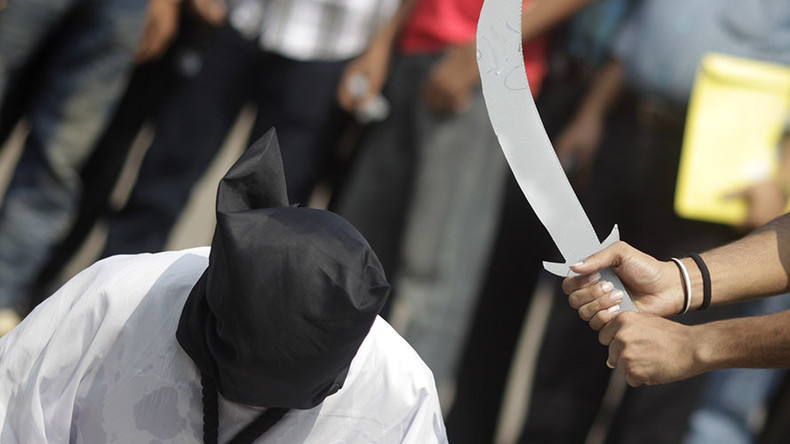The death sentence was carried out against Adnan bin Mustafa Al-Sharfa, The Ministry of Interior, reported on Monday.
It alleged that the Saudi national had “smuggled weapons to and from the kingdom and was part of a terrorist cell that aims to destabilize security in the country”.
The statement further claimed, “The terrorist cell he was a part of had plans to target Saudi Arabian security forces in their headquarters and kill them.”
Saudi opposition sources have rejected all false claims by the government, noting that the execution was in line with the Riyadh regime’s heavy-handed policy to sow fear among dissident figures and stifle opposition against the monarchy.
Saudi security forces arrested Al-Sharfa, and referred his case to the so-called Specialized Criminal Court in the capital Riyadh, where an investigation was launched.
The Saudi Ministry of Interior said the man was sentenced to death. The ruling was later upheld by the Specialized Court of Appeal and the Supreme Court, and a royal order was also issued to enforce the decision.
Saudi Arabia has stepped up politically-motivated arrests, prosecution and conviction of peaceful dissident writers and human rights campaigners, in particular in oil-rich and predominantly Shia eastern Province.
The province has been the scene of peaceful demonstrations since February 2011. Protesters have been demanding reforms, freedom of expression, the release of political prisoners, and an end to economic and religious discrimination against the oil-rich region.
The protests have been met with a heavy-handed crackdown, with regime forces increasing security measures across the province.
Ever since MbS became Saudi Arabia’s de facto leader in 2017, the kingdom has ramped up arrests of activists, bloggers, intellectuals, and others perceived as political opponents, showing almost zero tolerance for dissent even in the face of international condemnations of the crackdown.
Muslim scholars have been executed and women’s rights campaigners have been put behind bars and tortured as freedoms of expression, association, and belief continue to be denied.
Over the past years, Riyadh has also redefined its anti-terrorism laws to target activism.
In January 2016, Saudi authorities executed Shia cleric Sheikh Nimr Baqir Al-Nimr, who was an outspoken critic of the Riyadh regime. Nimr had been arrested in Qatif in 2012.
Source: The Saudi Press Agency (SPA)
